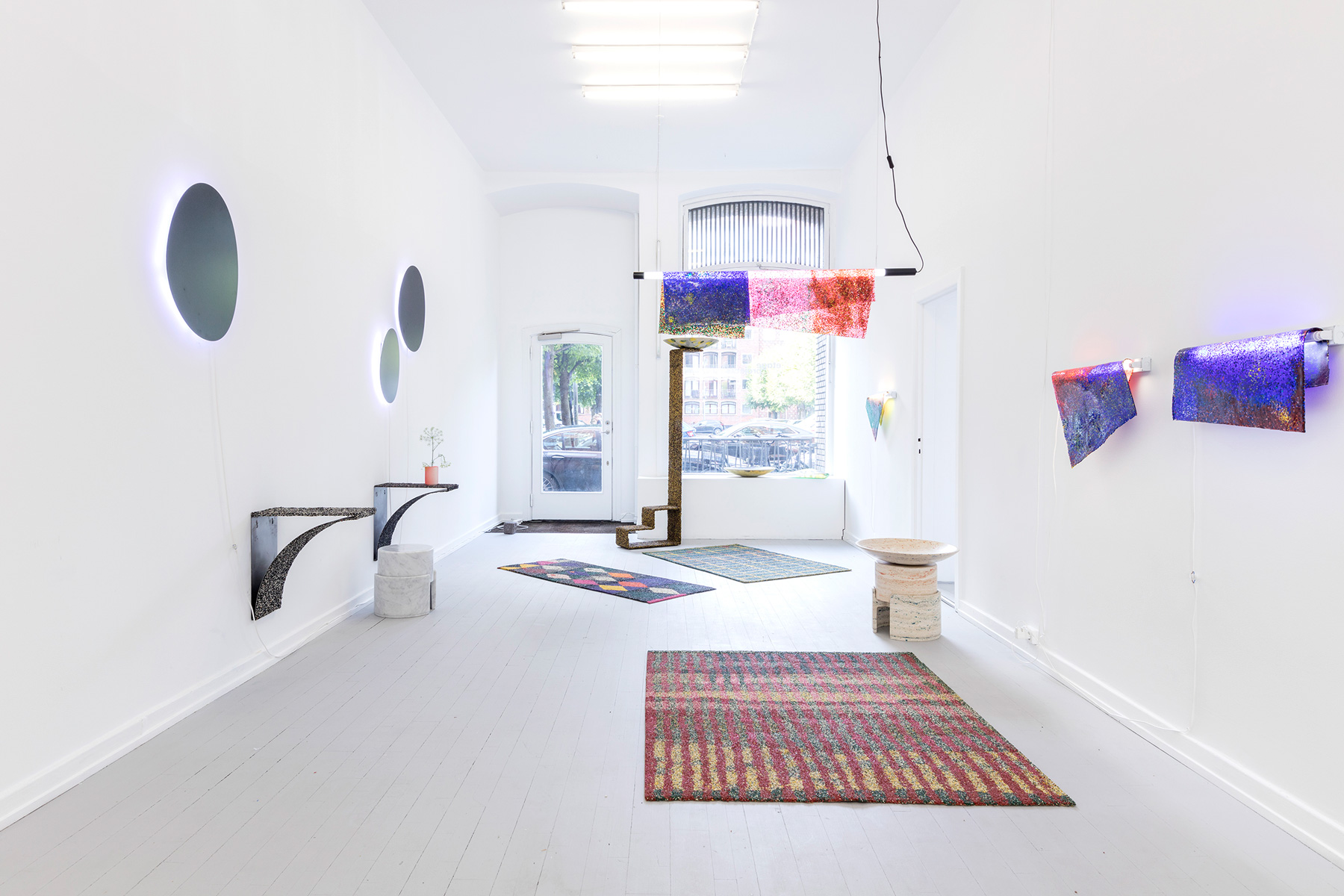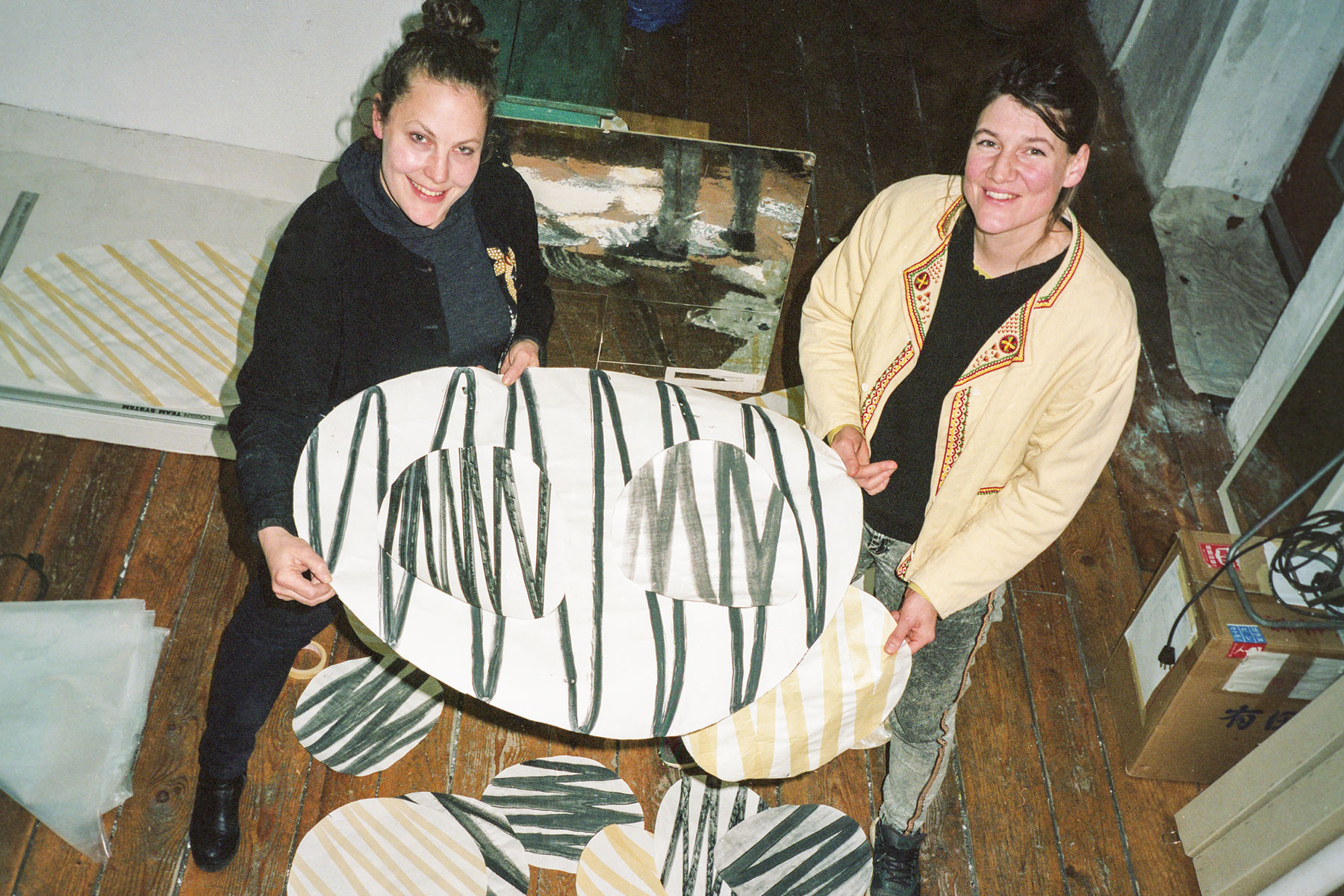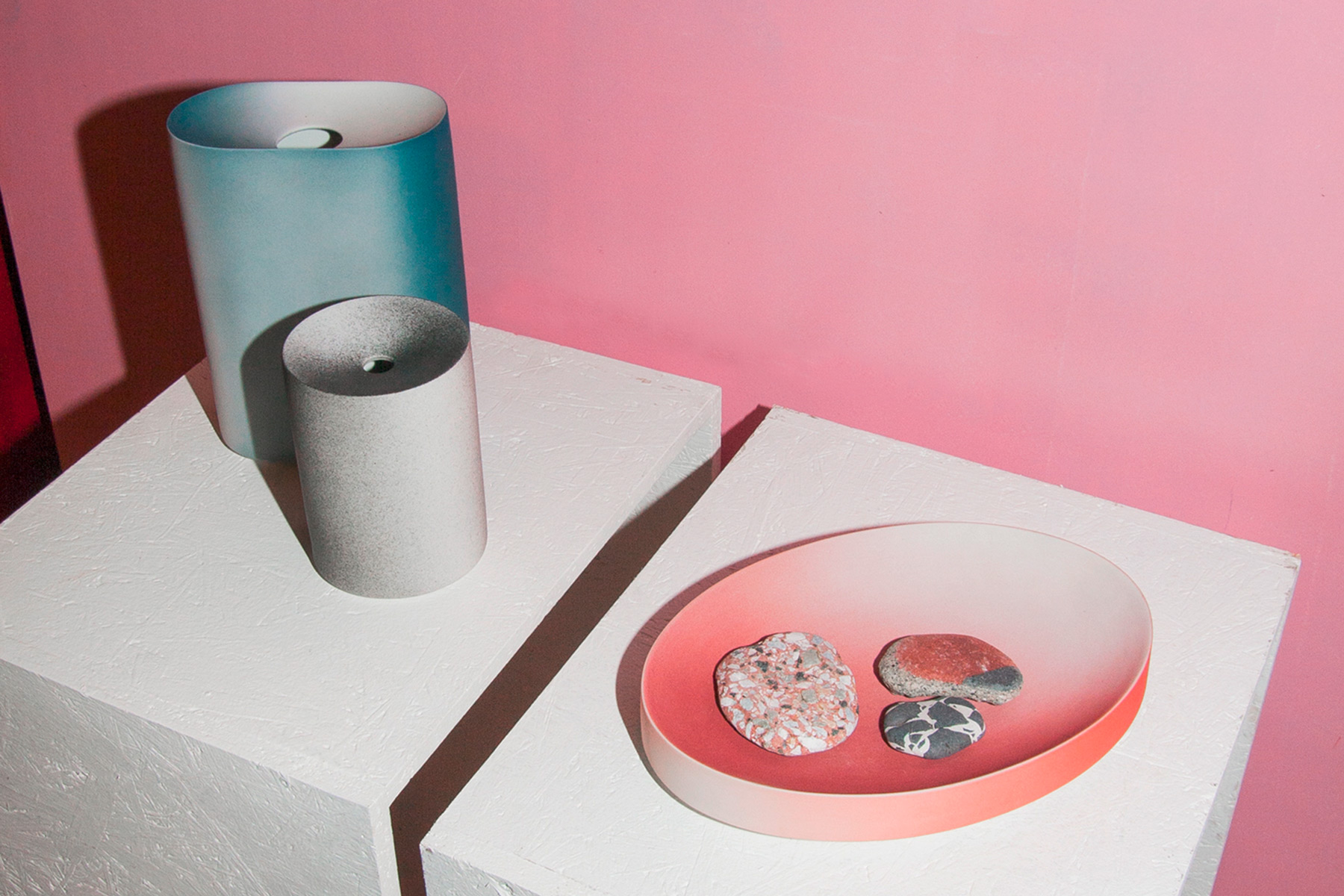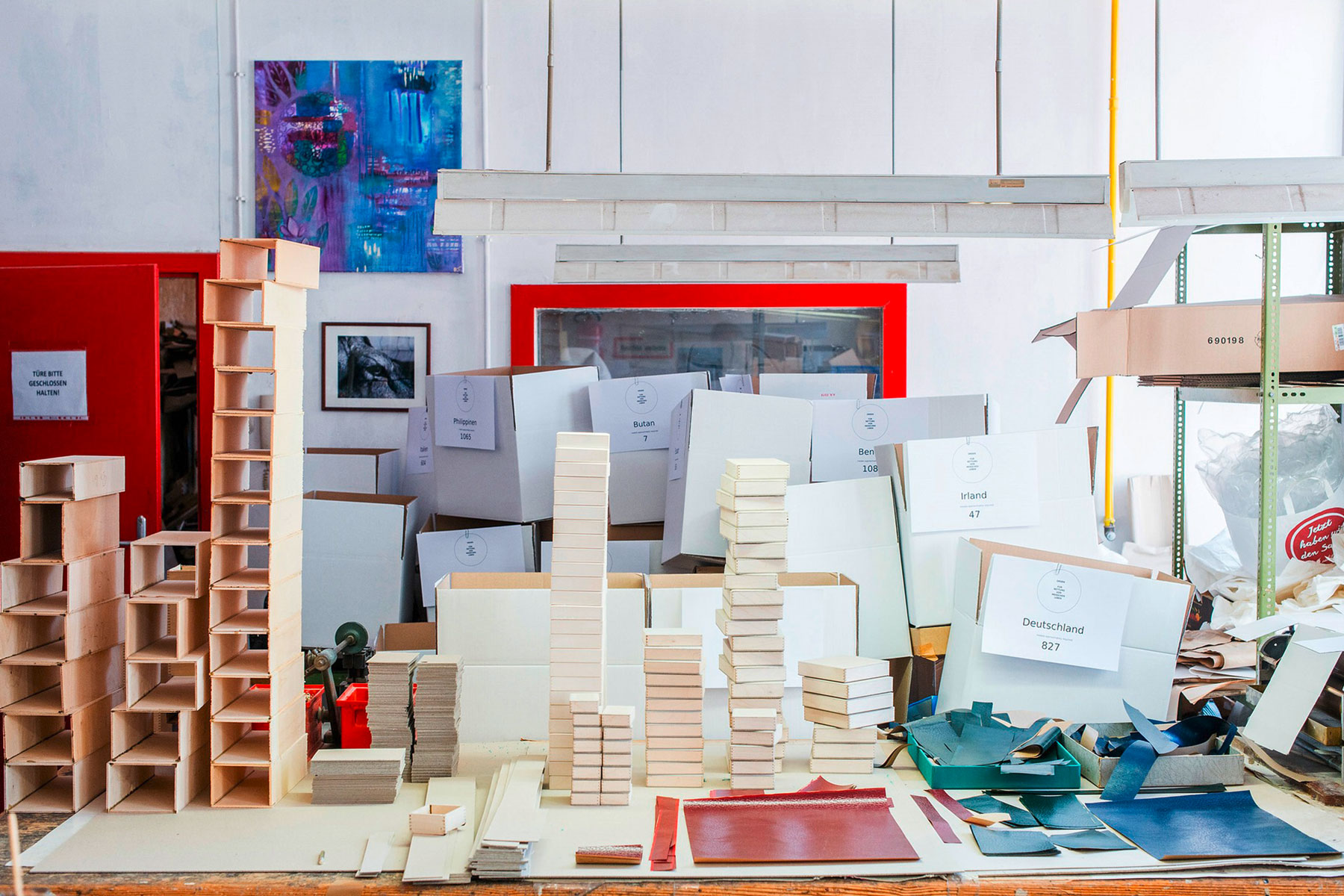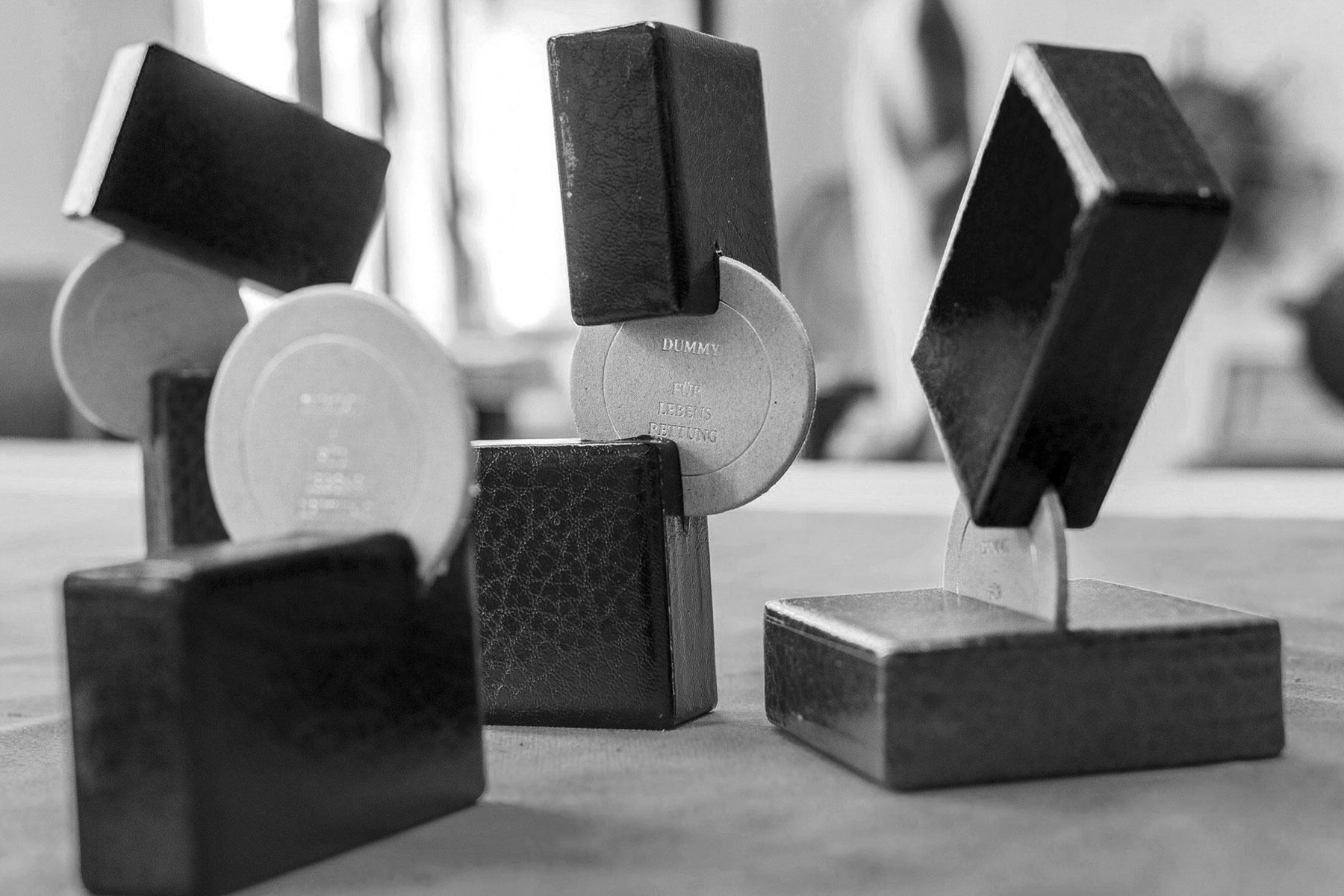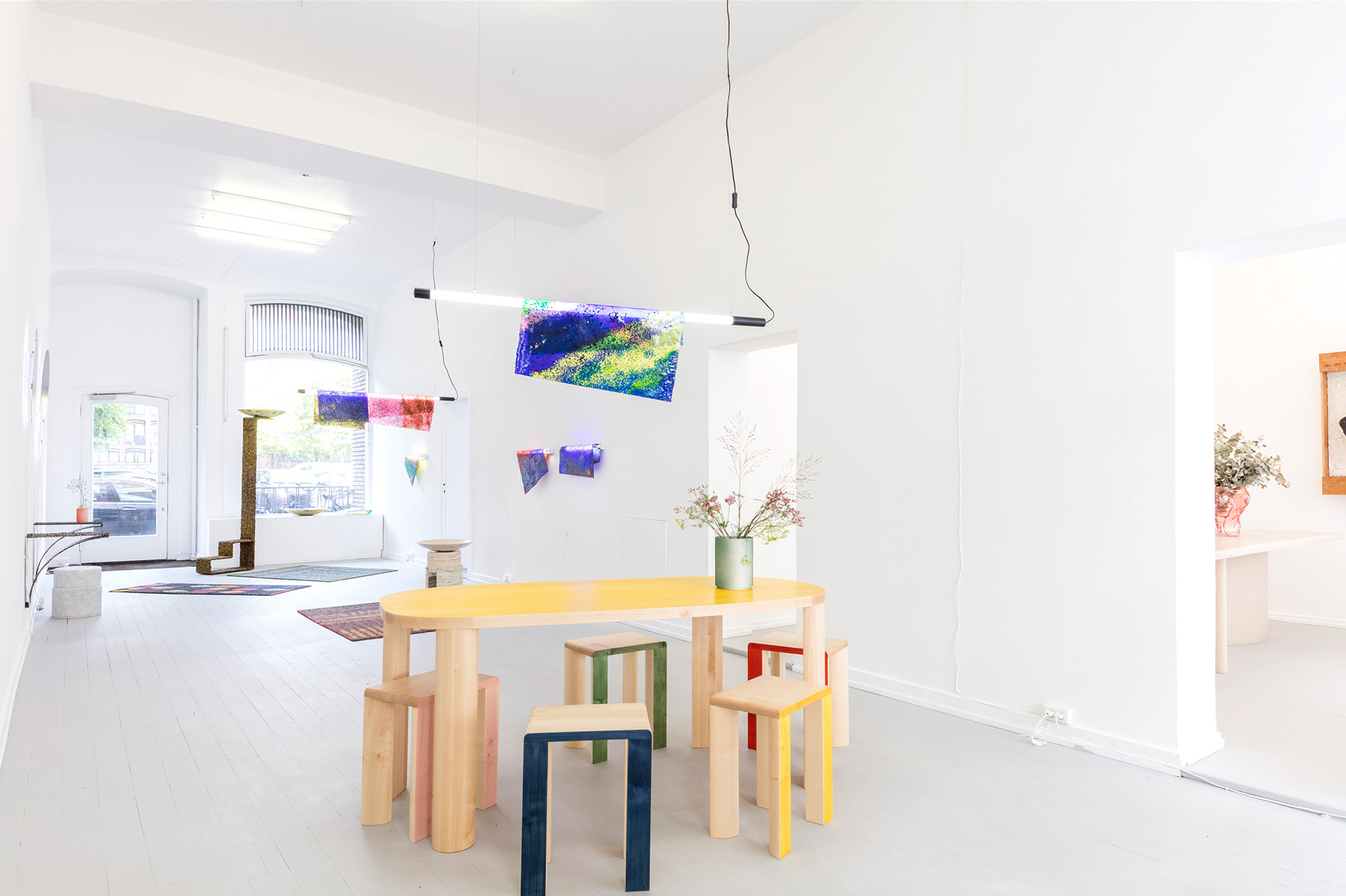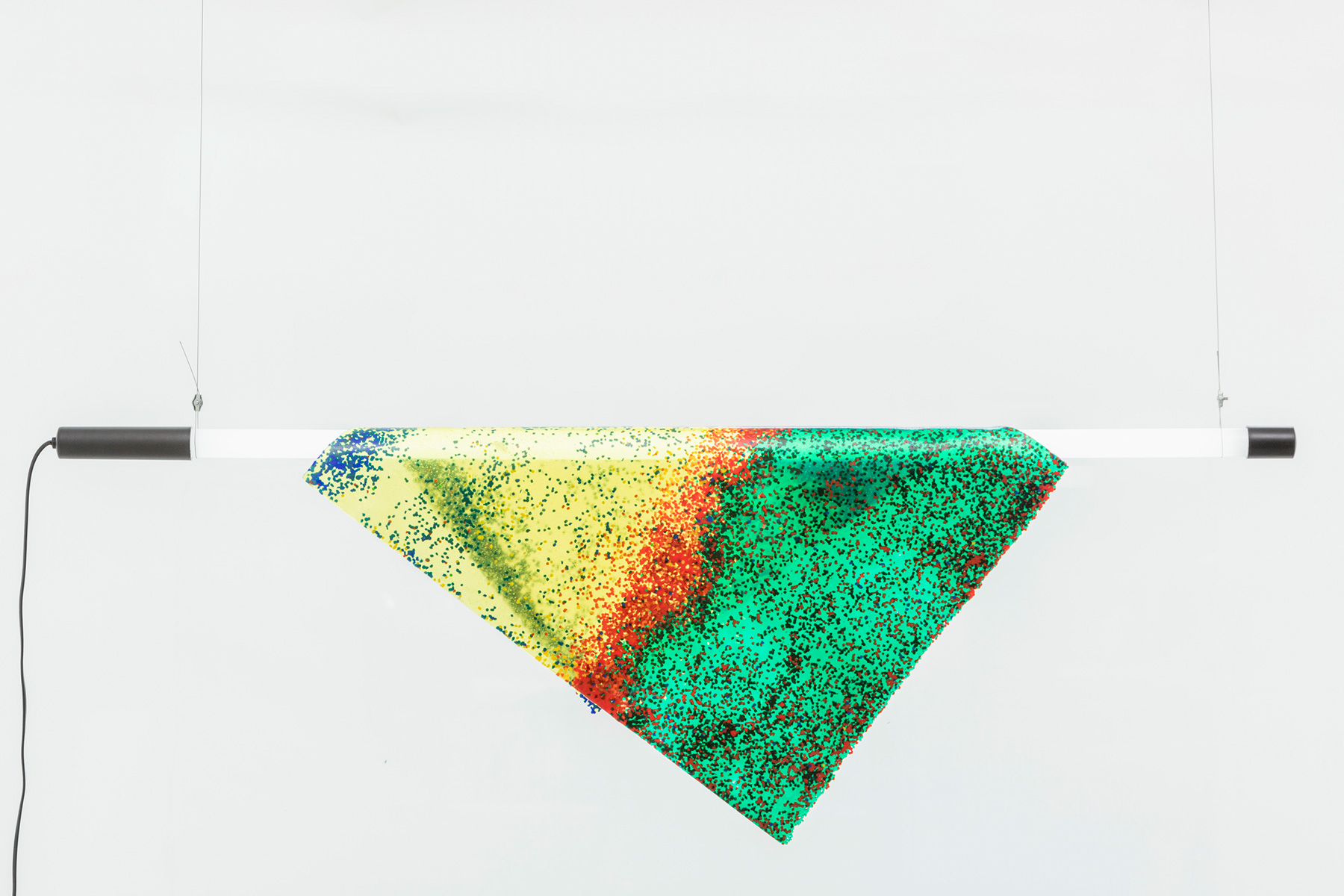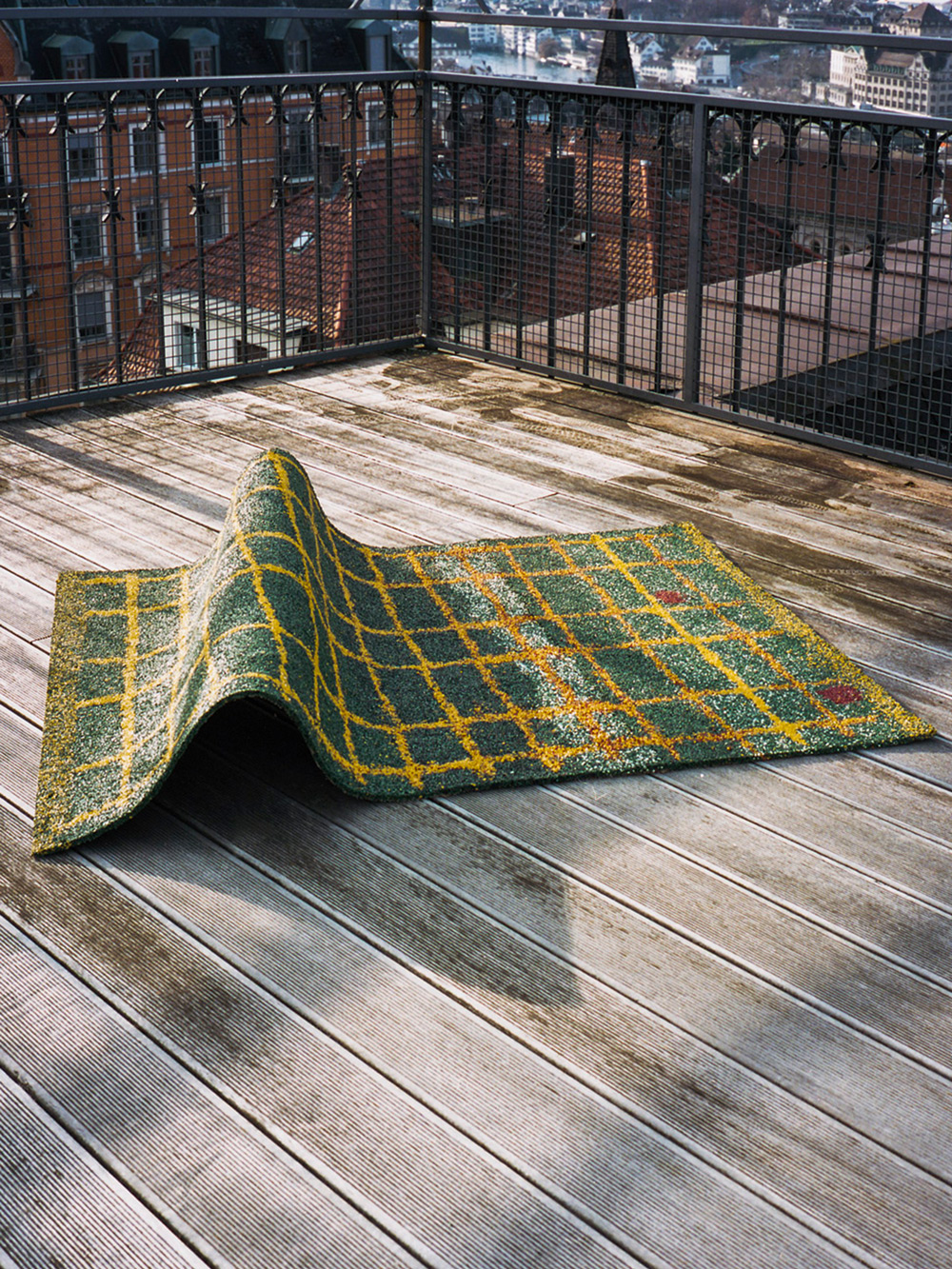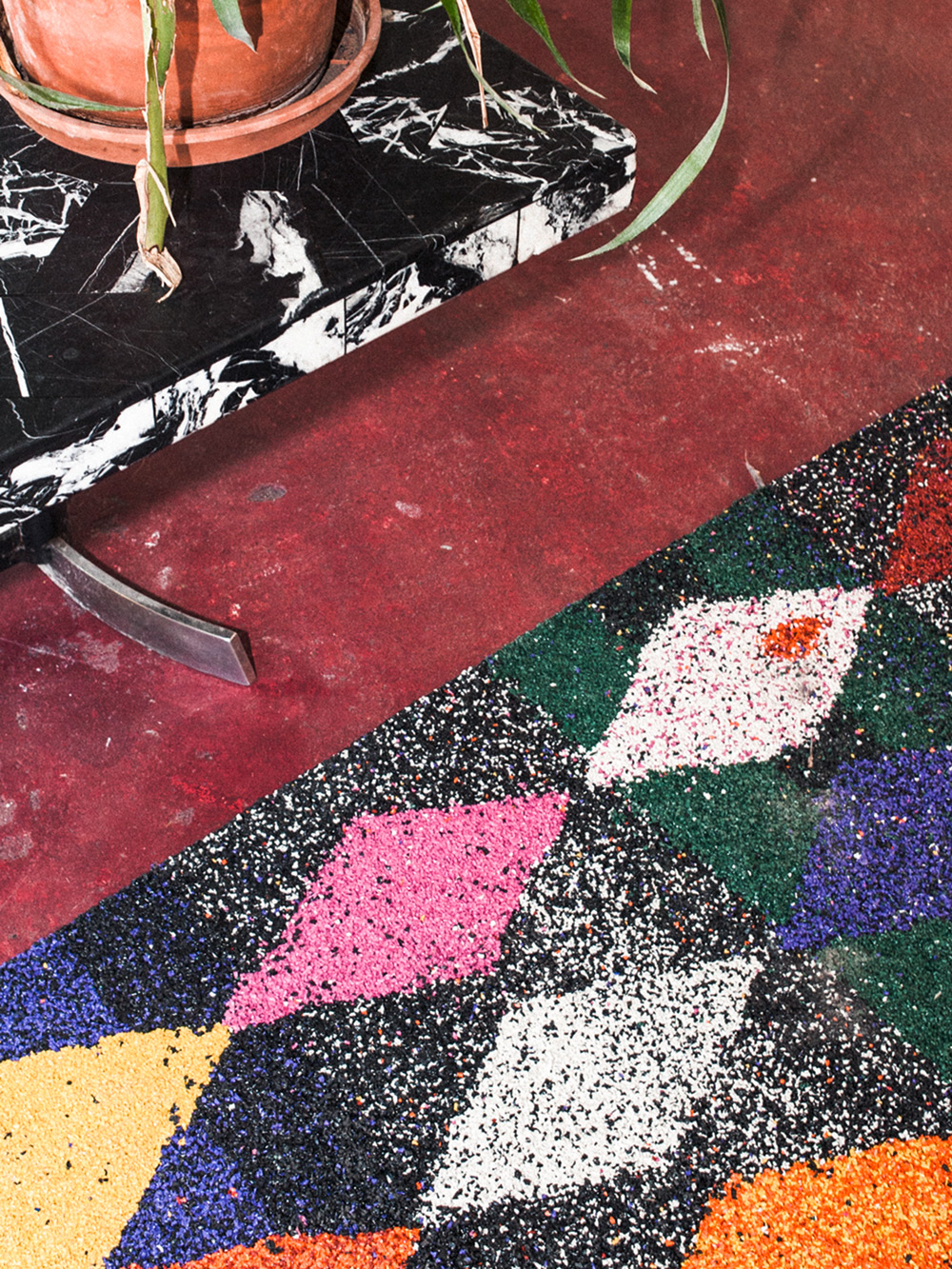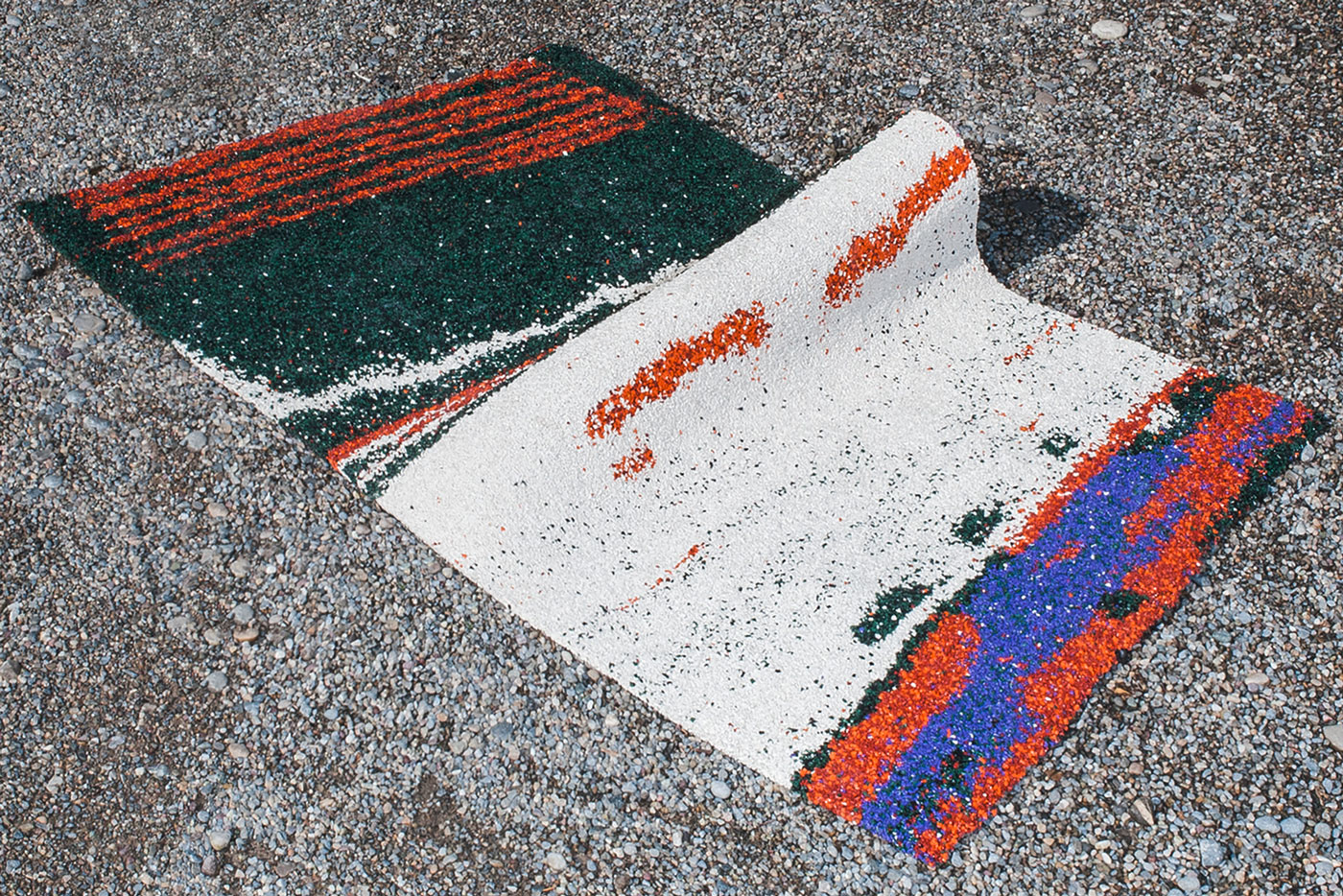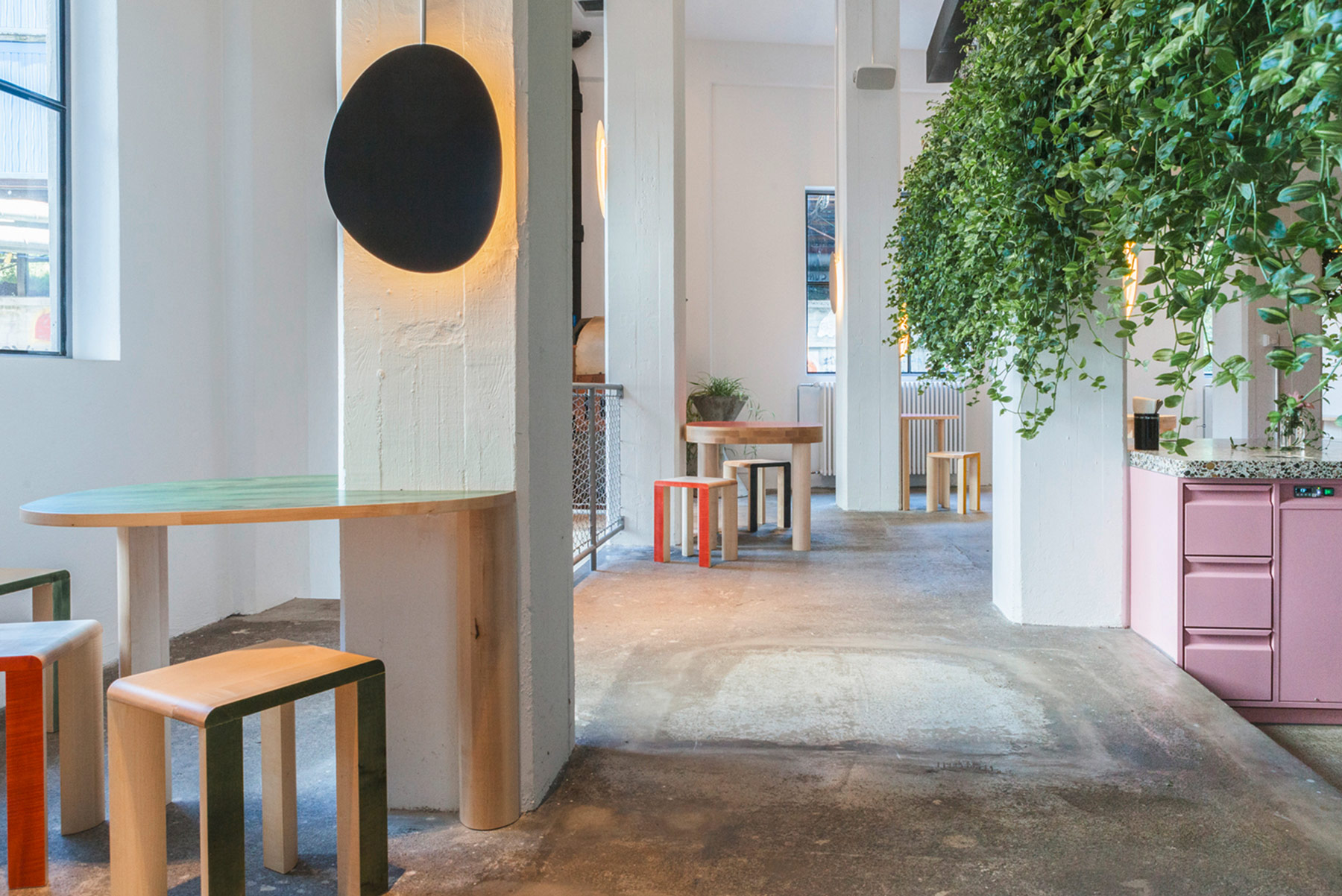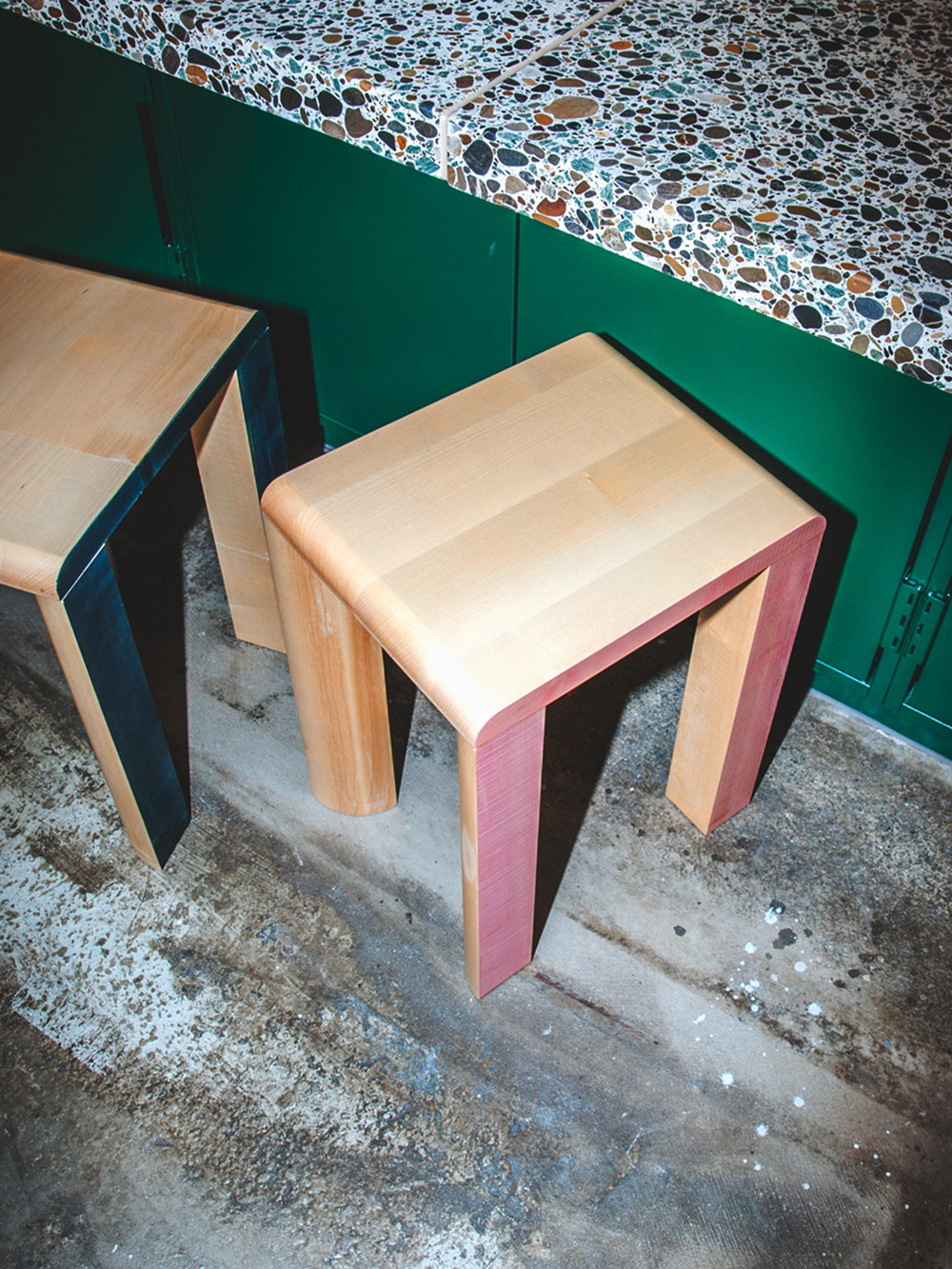Susanna Koeberle • 11.10.2018
Learning from masters
Sarah Kueng and Lovis Caputo have been working as Kueng Caputo for ten years. The duo always starts with a clear concept and experiments for a long time until the desired result occurs. However, chance can also play its role.
Artisanry and democratic design: At first this sounds like a contradiction. However, the work of Kueng Caputo shows that’s not always the case. The Zurich duo, consisting of Sarah Kueng and Lovis Caputo, got to know each other while studying at ZHdK and have now been working together for ten years. The subject of artisanry is always at the centre of their work. This is not really typical for traditional product designers. The works produced by the two designers tend to be unconventional and of more of a conceptual nature. However, this is why they don’t see themselves as artists. The way they navigate between the fronts makes their work particularly exciting. Which is obviously also how design galleries see the situation. One of them is Etage Project in Copenhagen, at which they recently had an individual exhibition. But limited editions are neither here nor there: Elitist thinking is completely alien to Kueng Caputo! Their way of working is far more characterised by common ideas.
Their collaboration with professional artisans from a wide range of professions is therefore precisely based on teamwork in particular. And on enormous respect for the work and know-how of these people.
The duo created the entire interior for the SiloSilo eatery and bar in Zurich. The wooden furniture is made in a carpenter’s workshop in Zurich and then decorated by Kueng Caputo.
«It’s a real shame that this knowledge is increasingly being lost. With our work we want to make a contribution towards keeping artisanry alive», says Lovis Caputo during our visit to the studio.
Sarah Kueng is currently travelling to Vienna for an artisan project. This is also an advantage of working in a collective enterprise: The work can be divided up. Both designers are fully committed to the principle of solidarity. Regardless of who is currently working, the income is always shared.
They are involved in a hands-on approach in many projects, «this is one of the nicest things about our work», says Lovis Caputo. But artisanry is expensive and this is reflected accordingly in the prices for the Kueng-Caputo pieces. The duo are now also interested in serial forms of production as shown by their vase and crockery collection for Arita 2016. Another completely new project for a range with various coloured handles for furniture is also going in this direction. «We have somehow slipped into this high-end track more by chance and it was not a conscious decision», explain the designers.
Various European design agencies were invited to Arita (Japan) for Project Arita 2016. Kueng Caputo had designed a series of vases and bowls, which were manufactured there in series (but partly by hand). They won the Swiss Design Award with the latter in 2017.
The concentration on items made by artisans is also considered to be a criticism of consumption at Kueng Caputo. In our neck of the woods we have too much of everything; acquiring hand-made items is perhaps an attempt to allow things to once again become favourites, cultivating emotional access to objects. Items, which we place value on accordingly and even pass on to other people. «My parents’ generation had a completely different attitude to possessions. They had few things, but good ones. This approach shaped me», she says. For Kueng Caputo designing does not merely mean creating products and then catapulting them onto the market, but also adopting a mindset of incorporating society. This was also the starting point for their Vienna project, to which they were invited by Vienna Design Week. The «Passionswege» are a curated format, which Vienna Design Week already introduced when it was founded 12 years ago. At that time many people dismissed artisanry with a tired smile, but it’s now more topical than ever. Artisan initiatives are springing up all over the place.
The two designers were brought together with an artisan business to whose products they had no relationship. Etui Fialka specialises in the artisan production of strong boxes and cases. At first they had to think of coffins, Caputo remembers with a grin. But they both managed to make something completely unique out of this opportunity. They put the cart before the horse and started with the use of these boxes. They are generally used to store medals. For what would medals be awarded nowadays? As politically involved and interested contemporaries, they thought of the current issue of refugees. They regarded the fact that helpers were often criminalised as unfair. Such people should be awarded a medal, instead of being punished for their courageous actions! And this medal should also be seen and not hidden away in a box.
Starting from this idea and the artisan process of making cases, they developed boxes, which are different from their original processing. Instead of opening the wooden caskets in the normal way, a slit was added to them. The fictitious medal they had designed could be placed in this slit. Then put another box on top again and the sculpture was finished. But careful: It’s not about creating a useless object, but about the thing, about the concept. This is because they are both very serious about the medal, which is why they started to research the subject. And this is how artisan production can become a connection, a link between worlds that appear very different. People and ideas form the core of their projects, not simply only the dead materials. This conceptual approach that is critical of society moves their work close to art.
As part of the «Passionswege» at Vienna Design Week, Kueng Caputo developed a very special object in collaboration with Etui Fialka. They created a sculpture in which the box is estranged from its original function. At the same time a new level of significance has arisen from this. Design also means dedication for the two designers.
Investigating materials is just as important. They consult specialists for many projects, such as for processing leather or stone. But what happens when something doesn’t even exist yet? In that case they try things out and tinker around. They are not deterred by failed experiments as both have an extremely persevering nature. «We fail from morning to night», says Caputo with a dry sense of humour. For example this was what happened with her lighting design for the latest exhibition at Etage Projects. At the beginning there was a run of the mill fluorescent tube. How can one add value to such an everyday item, which is used in many households all over the world? Working with colours is something close to both their hearts and so they decided on a colourful «dress», a type of throw for the lamp – made of glass granulate. They melted down the coloured parts and created a rectangle from them. They placed this rectangle over a pole when it was still soft like a piece of fabric. In the beginning it usually cracked, explains Caputo. A lot of patience is required for this type of experimental work because one has to be prepared to see what happens by chance. But the result is staggeringly beautiful.
For their individual exhibition at Etage Projects (their gallery in Copenhagen), Sarah Kueng and Lovis Caputo designed new lights made of glass granulate. The design consists of a coloured throw that can be placed over a simple fluorescent tube.
Sometimes they also allow themselves to be seduced by the beauty of things. This was the case for example with the carpets, which the women from a Moroccan Berber tribe produce from fabric remnants. The «Hommage Carpets» project came about from their fascination with the artistically woven patterns. We are all designers, could be the slogan for this work. How did Kueng Caputo put this idea into practice? They re-created these beautifully colourful carpets as a form of homage, but from a completely new material, namely rubber granulate. They had already been experimenting with it for two years, but now they could convert this knowledge into a new design. All this needs a lot of time, which more than justifies the high prices of the pieces. They know about the value of carefully produced things.
Carpets made of rubber granulate pay homage to the creations of Berber women from Morocco. Kueng Caputo have «copied» the artistic patterns on these carpets and transferred them to a new, unusual material. They have both been fascinated by the subject of the copy since doing their joint dissertation at ZHdK.
«It’s simply not realistic that a table costs 15 francs. The material alone will cost more», states Caputo. Artisan work is one option of controlling the origin of the materials and the production processes. Design and responsibility go hand in hand for Kueng Caputo.
The duo created the entire interior for the SiloSilo eatery and bar in Zurich. The wooden furniture is made in a carpenter’s workshop in Zurich and then decorated by Kueng Caputo.
